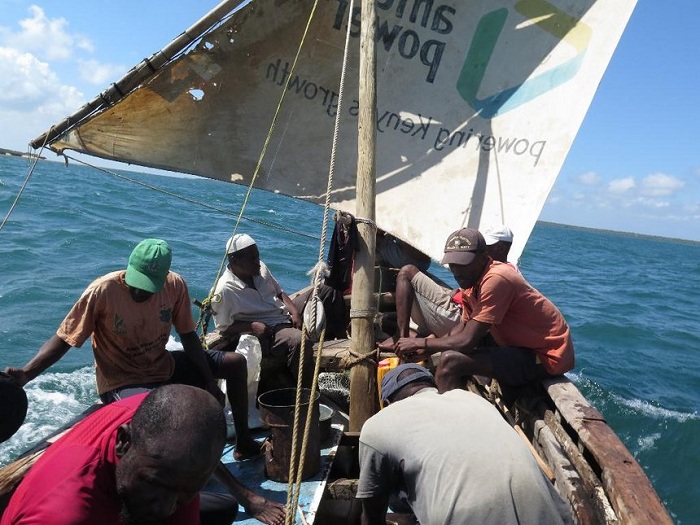Nairobi, KENYA: As Kenyans brace for another bout with drought, a new study released on Tuesday shows that local agrodealers could play a critical role in helping farmers adapt to climate change.
Despite them being very important, the study shows that their assistance is severely limited by a shortage of certified crop seed stocks and financing options.
The study, which was carried out by Bayesian Consulting Group,found farmer demand for certified seed regularly exhausted stocks at the agrodealer shops, particularly for non-maize seed.
A total of 438 agrodealers across eight counties were interviewed in the study that showed lack of seed for crops other than maize, has hindered efforts to fight climate change through crop diversification.
According to Anastasia Mbatia, a seed distribution specialist at Agri Experience,growing conditions have become more challenging and the fight for food security in Kenya may be won or lost with rural agrodealers.
“While we are glad to hear farmer demand for certified seed is rising rapidly, it is frustrating to learn that many agrodealers lack both the quantity and variety of seeds Kenyan farmers need to avoid drought-induced devastation.” Said Anastacia.
In the study, 51% of the agrodealers interviewed said that they cannot keep up with farmer demand for certified seed, While, 18% lacked the financing to increase stocks, even though potential sales would easily cover the credit.
Also, agrodealers often lacked certified seed for crops other than maize. As many agriculture experts note,improved varieties of crops like beans, sorghum and millet would be far better choices than maize when climate forecasts warn of unreliable rains.
According to Noel Templer, a research manager at Agri Experience, Kenya has a strong network of agrodealers that appear receptive to expanding its seed offerings; only that they lack financial support and the seed quantities to help them do it.
“It’s frustrating that crop breeders have developed varieties that could protect Kenyan farmers from drought, yet too often seeds for these crops simply are not easily accessible for farmers,” said Noel Templer.
The Untapped Potential of Kenya’s Agrodealers
The analysts traveled to 438 rural agrodealerships in eight counties spanning various regions of the country, namely: Murang’a (Central), Taita-Taveta (Coast); Meru (Upper Eastern); Nakuru (Central Rift), Kericho (South Rift); Trans-Nzoia (North Rift); Bungoma (Western) and Kisii (Nyanza).
They asked agrodealers about a wide range of issues that affected their businesses, including education levels, supplier relationships, gender, business costs, sales trends, and use of information and communications technology.
The analysts found that over 80% of Kenya’s agrodealership owners have a college, graduate or post graduate level education.
Therefore, they have the expertise to steer farmers to seed and inputs that can help them adapt to shifts in growing conditions.
READ ALSO: Council of Governors faults national government over hunger crisis
About 76% of the agrodealers said they work to educate farmers about both seed choices and farming practices that can boost yields.
A key positive finding from the study is that between 2014 and 2015, agrodealers posted an 85% increase in the volume of maize seed they stocked and another 27% jump in the 2016 long rains season.
This is important, because according to researchers maize harvests in Kenya, which average about 1.6 metric tons per hectare, lag far behind the global average of 5.6 metric tons. Wider use of certified seed for improved maize varieties is viewed as essential to closing this chronic “yield gap.”
“This intense demand for high quality certified seed justifies extending affordable credit to agrodealers to boost their inventory,” said Templer. “In this study, financing for agrodealers emerged as a major barrier to offering farmers a wider menu of seed choices.”
For example, while all of the agrodealers said they carried maize seed, only 42% stocked bean seeds, 16% stocked sorghum, 10 % carried finger millet, and 4% offered seed for green grams and cowpeas.
The study authors saw these numbers as further evidence that Kenya’s farmers are over-reliant on maize, which often performs poorly in drought relative to other crops.
“It’s time to reduce the dominance of maize on Kenyan farms and in Kenyan diets and to do that, farmers need access to a much wider range of quality seedsfor crops like beans and cowpeas,” said Julius Kamau, an agrodealer at JujaAgrovet in Embu County.
“Seed producers can help by working with agrodealers to establish demonstration plots that can showcase the superior performance of certified seeds for an array of crops.” Concluded Julius.












